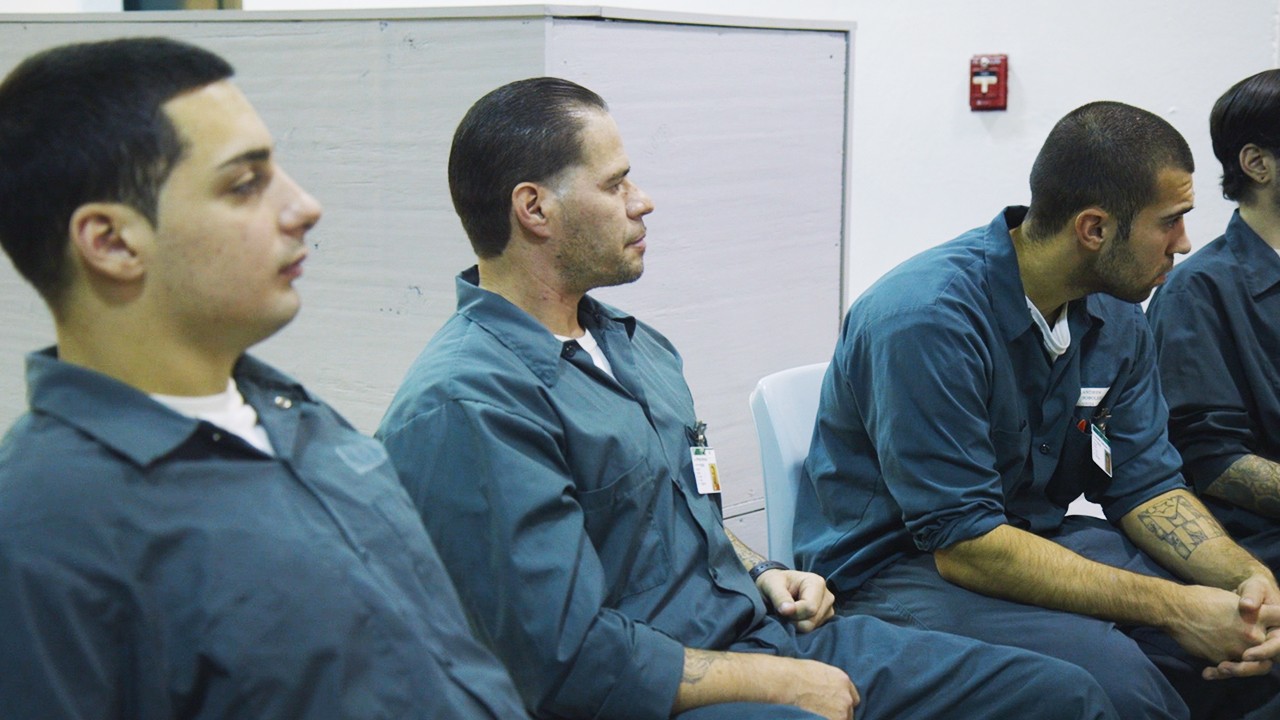Gay Men's Health Crisis Center in June, 1983. For over 30 years, the center has been at the forefront of AIDS activism; their newly opened substance use clinic is their latest effort to combat the crisis on multiple fronts. Photo by Jack Smith/NY Daily News Archive via Getty Images
A little over two years ago, T.S. began attending anonymous recovery meetings for alcoholism and addiction to other substances; today, she's approaching two years of sobriety. (She asked to be identified by her initials because she's not publicly out as a former substance user.) The 27-year-old began transitioning earlier this year, something she tells me never would have happened had she not sought treatment."Seeking help for my addictions granted me a foundation of self-knowledge, which primed me for transition more than anything else," T. said. "I wouldn't have started transitioning by now if I hadn't gotten sober when I did."A key factor in her recovery has been her ability to attend meetings specifically geared towards LGBTQ people. Less frequently, she attends meetings for women and trans people, but T. said her general LGBTQ group, though mostly populated by gay men, has been "really encouraging" of her transition."I have never regretted going to a meeting," she said. "It's not a perfect process, but it's so much better than my life was when I was drinking and using drugs."T. is fortunate to live in a city like New York, where there are recovery meetings geared towards not just one but all of her identities—resources many LGBTQ people lack access to. And because queer people use illicit drugs at more than twice the rate of their straight and cis counterparts, recovery services that address their specific needs are vital in helping them overcome addiction."[Substance abuse] is a queer and trans issue because the stigma, discrimination, and violence we face makes us more vulnerable to things like substances and substance use," said Antonio Ruberto Jr., the Director of Behavioral Health at New York's The Center, an LGBTQ community center in the West Village. "Some people use substances as a way of coping with things like stigma and oppression."Those are factors a growing number of health professionals are taking into account when designing spaces and services for queer people in recovery. The Center, for example, offers treatment programs for adults and teens, which include one-on-one counseling and group support, along about 80 different kinds of recovery meetings. In operation for a decade, the Center's substance use clinic treats about 400 unique individuals per year, according to Ruberto.Last Wednesday, the city gained one more resource explicitly designed for queer and HIV-positive people in recovery when Gay Men's Health Crisis (GMHC), one of New York's most influential AIDS services organizations, opened its new, state-of-the-art substance use clinic. The clinic, which is open to all comers regardless of sexuality and HIV status, promises to provide affordable, cutting-edge care to those in recovery with specific, intersectional treatment needs. Located next to the GMHC's Carl Jacobs Mental Health Clinic, it's also uniquely positioned to address the dual needs of those suffering from mental health issues as well as addiction."The harmful stigma surrounding substance misuse, mental health, and HIV/AIDS continues to keep people from seeking the help they need," New York First Lady Chirlane McCray told a crowd at the clinic's ribbon cutting ceremony Wednesday. "It is one thing to have services, but if they are not accessed and people don't feel comfortable going and receiving treatment they're not going to continue [going and receiving treatment].
Watch "Cold Turkey: New Hampshire's Prison Detox"
The clinic is separated from the rest of the GMHC space by its own waiting room, which features pamphlets about PrEP, syringe exchange programs, crystal meth use and other vital information. Almost all of that reading material is available in both Spanish and English. Treatment and meeting rooms will play host to one-on-one counseling, group therapy, Narcan training and a twice weekly drop-in space focused on fostering sex-positive harm reduction strategies for crystal meth users.The clinic's goal is to provide these services without the triggers that queer and mentally ill people often endure when seeking help. Resources are available to teach interested parties how to manage their substance use, whether with the goal to find sobriety or find a lower level of risk in their use. Eric Yarbrough, director of Psychiatry at New York's Callen-Lorde Community Health Center, said that that's a treatment approach that's not just good—it's necessary."Queer people need safe spaces, knowledgeable people, and members of their own communities," Yarbrough told me. "Access to care is a big problem in queer communities. People won't seek care from professionals who are not competent in LGBTQ issues. It's a community that continues to suffer from discrimination and marginalization, and substance abuse is a result of that. These higher rates of use are not innate to the community."That was a sentiment Antonio Ruberto Jr. agreed with. "Some people might not feel entirely comfortable at a quote, unquote 'non-LGBT' substance abuse program," Ruberto said. "They might not feel safe discussing their background with non-LGBT members and might feel discouraged talking about their sexuality."With resources like the GMHC's new clinic, the hope is that a national model can emerge for queer-friendly treatment spaces, one that can inform a brighter future for America's disproportionately high number of LGBTQ substance users.T., the New Yorker who has been going to recovery meetings for nearly two years, said that something as simple as not assuming one's gender or pronouns can make a world of difference to a trans or gender-nonconforming person in recovery. The same goes for respecting these things once they're known. Despite being relatively easy things to be mindful of, they can be a challenge, she admitted, especially for people who don't know a lot of queer or trans people—but not an obstacle."It helps keep trans and gender-nonconforming people sober, so it's worth your effort," she said.Follow Harron Walker on Twitter.
Advertisement
Advertisement
Advertisement
Watch "Cold Turkey: New Hampshire's Prison Detox"

The clinic is separated from the rest of the GMHC space by its own waiting room, which features pamphlets about PrEP, syringe exchange programs, crystal meth use and other vital information. Almost all of that reading material is available in both Spanish and English. Treatment and meeting rooms will play host to one-on-one counseling, group therapy, Narcan training and a twice weekly drop-in space focused on fostering sex-positive harm reduction strategies for crystal meth users.The clinic's goal is to provide these services without the triggers that queer and mentally ill people often endure when seeking help. Resources are available to teach interested parties how to manage their substance use, whether with the goal to find sobriety or find a lower level of risk in their use. Eric Yarbrough, director of Psychiatry at New York's Callen-Lorde Community Health Center, said that that's a treatment approach that's not just good—it's necessary."Queer people need safe spaces, knowledgeable people, and members of their own communities," Yarbrough told me. "Access to care is a big problem in queer communities. People won't seek care from professionals who are not competent in LGBTQ issues. It's a community that continues to suffer from discrimination and marginalization, and substance abuse is a result of that. These higher rates of use are not innate to the community."
Advertisement
